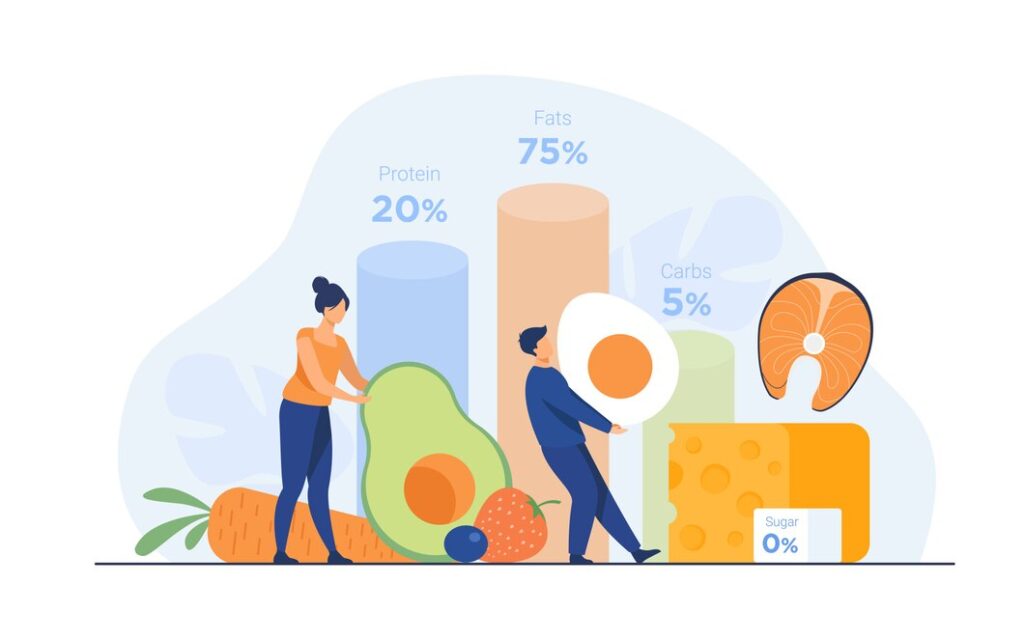Achieving Your Ideal Weight and Lean Body Mass: A Guide to Optimal Health
In the quest for better health and fitness, understanding your ideal weight and lean body mass (LBM) plays a crucial role. These metrics provide insights into your body’s composition and help tailor fitness and nutrition plans that align with your health goals. With the Ideal Weight and LBM Calculator, you can embark on a journey to discover and achieve your body’s full potential. This article delves into the science behind ideal weight and lean body mass, offering the latest research and practical tips to guide you on your path to optimal health.
![]()
Ideal Weight and LBM Calculator

Understanding Ideal Weight: Beyond the Numbers
The concept of “ideal weight” goes beyond mere numbers on a scale. It represents a weight range that is considered healthy based on several factors, including height, gender, age, and body composition. Achieving your ideal weight can enhance your physical well-being, boost energy levels, and reduce the risk of chronic diseases such as heart disease and diabetes.
Factors Influencing Ideal Weight
- Height and Gender: Traditionally, height and gender have been used to determine ideal weight ranges, as they influence the body’s proportions and fat distribution.
- Age: As we age, our body’s composition and metabolism change, affecting our ideal weight. Adjusting our weight goals as we age is crucial to maintain health.
- Body Composition: Muscle mass, bone density, and fat percentage are key components of body composition that affect your ideal weight.
Calculating Ideal Weight
The Ideal Weight and LBM Calculator uses the Devine formula, which estimates ideal body weight based on height and gender:
Calculating Ideal Weight
The Ideal Weight and LBM Calculator uses the Devine formula, which estimates ideal body weight based on height and gender:
- Men: 50 kg + 2.3 kg for each inch over 5 feet
- Women: 45.5 kg + 2.3 kg for each inch over 5 feet.
This formula provides a starting point, but it’s important to consider individual factors such as muscle mass and body fat percentage when determining your ideal weight.
Exploring Lean Body Mass: The Foundation of Fitness
Lean Body Mass (LBM) refers to the weight of your body minus the fat. It includes muscles, bones, organs, and fluids, and is crucial for metabolic health and physical performance.
The Importance of Lean Body Mass
- Metabolic Rate: A higher lean body mass boosts your basal metabolic rate (BMR), allowing you to burn more calories at rest.
- Physical Performance: Lean muscle mass enhances strength, endurance, and overall athletic performance, making it a key factor in fitness training .
- Health Benefits: Maintaining a healthy LBM can reduce the risk of metabolic disorders and improve insulin sensitivity.
Calculating Lean Body Mass
The Ideal Weight and LBM Calculator estimates your LBM using your current weight, height, gender, and body fat percentage. This information helps you understand your body’s composition and set realistic fitness goals.
Achieving Your Ideal Weight and LBM: Practical Strategies
Embarking on a journey to reach your ideal weight and LBM requires a balanced approach that combines nutrition, exercise, and lifestyle changes .Here are some practical strategies to guide you:
1. Nutrition for Optimal Weight and LBM
- Balanced Diet: Focus on a diet rich in lean proteins, whole grains, fruits, and vegetables to support muscle growth and maintain a healthy weight.
- Protein Intake: Adequate protein intake is crucial for preserving muscle mass and promoting muscle recovery after workouts.
- Caloric Balance: Monitor your caloric intake to ensure you’re meeting your energy needs without exceeding them, which can lead to weight gain .
2. Exercise for Lean Muscle Mass
- Strength Training: Incorporate resistance exercises like weightlifting and bodyweight exercises to build and maintain lean muscle mass.
- Cardiovascular Fitness: Include aerobic exercises like running, cycling, and swimming to support heart health and improve endurance.
- Flexibility and Balance: Practices like yoga and Pilates enhance flexibility and balance, contributing to overall physical fitness.
3. Lifestyle Modifications
- Sleep Quality: Prioritize sleep to support muscle recovery and hormonal balance, both of which are essential for maintaining a healthy weight.
- Stress Management: Practice stress-reducing techniques such as mindfulness and meditation to prevent stress-related weight gain.
- Hydration: Stay hydrated to support metabolic processes and muscle function.
Embracing Your Unique Journey
Achieving your ideal weight and lean body mass is a personal journey that requires dedication, patience, and self-compassion. By leveraging the Ideal Weight and LBM Calculator, you can gain valuable insights into your body’s composition and make informed decisions that support your health and fitness goals.
Conclusion
The path to your ideal weight and LBM is not just about achieving a specific number on the scale. It’s about understanding your body’s unique needs and taking a holistic approach to health and wellness. Embrace the journey with the knowledge and tools to achieve your goals, and remember that every step forward is a step toward a healthier, happier you .
Useful Resources:
- National Institutes of Health – Body Weight and Health
- American Council on Exercise – Body Composition
- Harvard Health – Healthy Weight
SEO Components
Page Title (60 characters):
Ideal Weight and Lean Body Mass: Your Path to Health
Meta Description (160 characters):
Discover how to achieve your ideal weight and lean body mass with expert tips and our calculator. Find the balance for optimal health today.
Keywords:
- Primary Keyword: Ideal Weight and Lean Body Mass
- Secondary Keywords: body composition, health goals, muscle mass, fitness, healthy weight.
This article offers a comprehensive look at ideal weight and lean body mass, providing practical advice and scientific insights to guide readers toward their health goals. If you have any more adjustments or requests, feel free to let me know!
